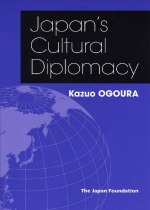CPD Spotlight
When one thinks of diplomatic engagement with North Korea – officially the Democratic People’s Republic of Korea (DPRK) – what comes to mind are countless official and unofficial dialogues and negotiations regarding its nuclear capabilities peppered with various incentives, typically in the form of food, fertilizer, and energy assistance. At this particularly unsettling time in relations with the DPRK, where key official communication avenues are increasingly limited, it is more important than ever to open new channels of engagement.
Public diplomacy through the distribution of aid has been a staple component of the public diplomacy strategies of various countries. This month we have seen numerous governments provide aid to the people of Haiti. Since the tragic earthquake of January 12, countless stories of aid diplomacy have appeared in the news.
In the past month, Israel’s attempt to rebrand itself through citizen public diplomats caused a stir in the realm of public diplomacy. Israel‘s Minster of Information, Diaspora and Public Diplomacy, Yuli Edelstein announced a plan in early January to recruit Israelis living abroad, as well as the multitude of Israeli travelers, as citizen public diplomats.
The film industry like the Ottoman Empire of yore seems to be in perpetual crisis. Trade organizations – the most notable being the U.S. film industry’s MPAA – regularly deliver dire warnings about the damage wrought by DVD piracy and competition from the improvements in home viewing technology. Then there are the doomsayers who note that video gaming has long since overtaken motion pictures as a revenue generator. Yet if nation states and other practitioners of public diplomacy are anything to go by, then cinema is still seen as a central vehicle for international communication.
Reviewed by Philip Seib

Japan Foundation president Kazuo Ogoura has held high posts in his country‘s Ministry of Foreign Affairs and has served as Japan‘s ambassador to Vietnam, South Korea, and France. His diplomatic experience infuses Japan’s Cultural Diplomacy with pragmatic recognition of the value and the limits of cultural diplomacy.
If we define public diplomacy as communication between a national government and foreign public, Expo 2010 Shanghai is certainly the most extensive public diplomacy event to date. In a 1,304 acre site and during six months, national governments from 189 countries will communicate directly with an estimated 70 million visitors.
There is a battle brewing in international politics that includes a number of important stakeholders and leaders in the global arena. And it is not about how long the U.S. led coalition should stay in Afghanistan or Iraq, or about the need for greater regulations of the international financial sector. Rather, it is about information sovereignty.







